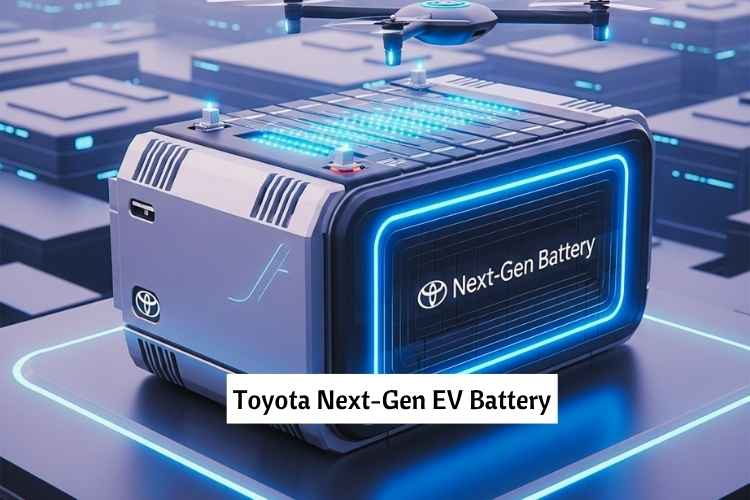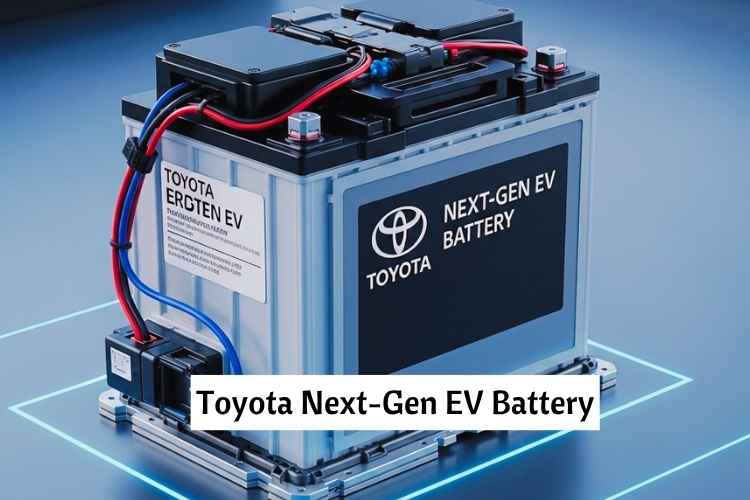Toyota Next Gen EV Battery: For years, Toyota has been a quiet giant in the electric vehicle (EV) space. Known for pioneering hybrid vehicles like the Prius, Toyota has often been criticised for lagging in the fully electric game. But that’s all about to change. With its next-generation EV battery technology, Toyota is poised to disrupt the EV market in a major way. The company’s solid-state battery innovations, longer ranges, faster charging times, and a redefined manufacturing strategy could significantly shift the competitive landscape.
This article explores how Toyota’s next-gen battery works, why it matters, and what it means for the global EV market.

Table of Contents
What Is Toyota’s Next Gen EV Battery?

Toyota focuses on solid-state battery technology, a major leap forward from the lithium-ion batteries used in most EVs today.
Key Features of Toyota Next Gen EV Battery:
| Feature | Description |
|---|---|
| Battery Type | Solid-state (vs. traditional liquid lithium-ion) |
| Range Potential | Up to 745 miles (1,200 km) on a single charge |
| Charging Time | As low as 10 minutes for 10-80% charge |
| Size & Weight | Smaller and lighter than conventional batteries |
| Safety | Less risk of overheating or catching fire |
The Innovation Factor: Why Toyota Next Gen EV Battery Stands Out
Most EV makers today are working on improving lithium-ion chemistry. Toyota, however, is leapfrogging directly to solid-state, a far more ambitious and futuristic solution.
What Makes Solid-State Batteries Revolutionary?
| Advantage | Why It Matters |
|---|---|
| Energy Density | Solid-state batteries can store more energy in less space, enabling longer driving ranges. |
| Durability | They degrade slower over time, potentially lasting 2x longer than current EV batteries. |
| Thermal Stability | Reduced fire risk makes EVs safer, especially under extreme conditions. |
| Scalability | While still costly now, these batteries can be mass-produced efficiently in the future. |
Toyota has over 1,300 solid-state battery patents, more than any other company globally, giving it a serious first-mover advantage.
Competitive Landscape: Who Should Be Worried?
While Tesla, BYD, and Korean automakers like Hyundai and Kia have a head start in EV production, Toyota’s next-gen battery could upend that lead.
Market Shifts to Expect:
| Company | Potential Impact |
|---|---|
| Tesla | Investing in a solid state with QuantumScape, Toyota’s timeline appears faster. |
| BYD | Dominant in China, but largely based on lithium-iron phosphate batteries. Could lose edge if Toyota scales globally. |
| Volkswagen | Investing in solid-state with QuantumScape, but Toyota’s timeline appears faster. |
| Ford/GM | Need to catch up in both tech and production scale, particularly with battery breakthroughs. |
Conclusion
Toyota has never been about flashy headlines. But behind the scenes, it’s quietly engineering a revolution. Its next-gen EV batteries are more than just a technical upgrade—they represent a fundamental rethink of how electric vehicles are built, charged, and sold.
If Toyota can pull this off—and the signs are promising—it could regain its throne as the innovation leader in mobility. The EV market won’t just shift—it might be flipped on its head.
Bhakti Rawat is a Founder & Writer of InsureMyCar360.com. This site Provides You with Information Related To the Best Auto Insurance Updates & comparisons. 🔗
